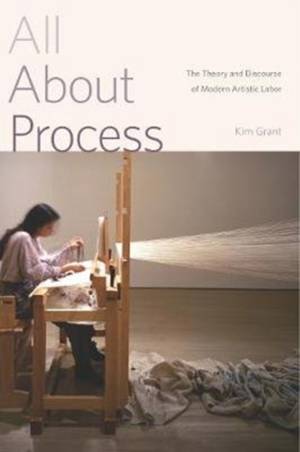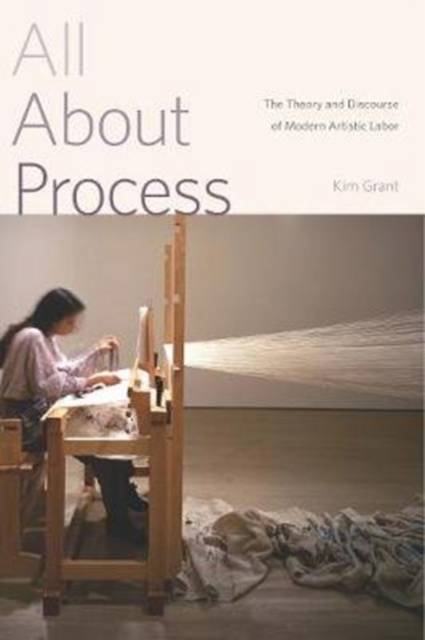
- Retrait gratuit dans votre magasin Club
- 7.000.000 titres dans notre catalogue
- Payer en toute sécurité
- Toujours un magasin près de chez vous
- Retrait gratuit dans votre magasin Club
- 7.000.0000 titres dans notre catalogue
- Payer en toute sécurité
- Toujours un magasin près de chez vous
All about Process
The Theory and Discourse of Modern Artistic Labor
Kim GrantDescription
In recent years, many prominent and successful artists have claimed that their primary concern is not the artwork they produce but the artistic process itself. In this volume, Kim Grant analyzes this idea and traces its historical roots, showing how changing concepts of artistic process have played a dominant role in the development of modern and contemporary art.
This astute account of the ways in which process has been understood and addressed examines canonical artists such as Monet, Cézanne, Matisse, and De Kooning, as well as philosophers and art theorists such as Henri Focillon, R. G. Collingwood, and John Dewey. Placing "process art" within a larger historical context, Grant looks at the changing relations of the artist's labor to traditional craftsmanship and industrial production, the status of art as a commodity, the increasing importance of the body and materiality in art making, and the nature and significance of the artist's role in modern society. In doing so, she shows how process is an intrinsic part of aesthetic theory that connects to important contemporary debates about work, craft, and labor.
Comprehensive and insightful, this synthetic study of process in modern and contemporary art reveals how artists' explicit engagement with the concept fits into a broader narrative of the significance of art in the industrial and postindustrial world.
Spécifications
Parties prenantes
- Auteur(s) :
- Editeur:
Contenu
- Nombre de pages :
- 296
- Langue:
- Anglais
Caractéristiques
- EAN:
- 9780271077451
- Date de parution :
- 01-04-18
- Format:
- Livre broché
- Format numérique:
- Trade paperback (VS)
- Dimensions :
- 155 mm x 226 mm
- Poids :
- 408 g

Les avis
Nous publions uniquement les avis qui respectent les conditions requises. Consultez nos conditions pour les avis.






